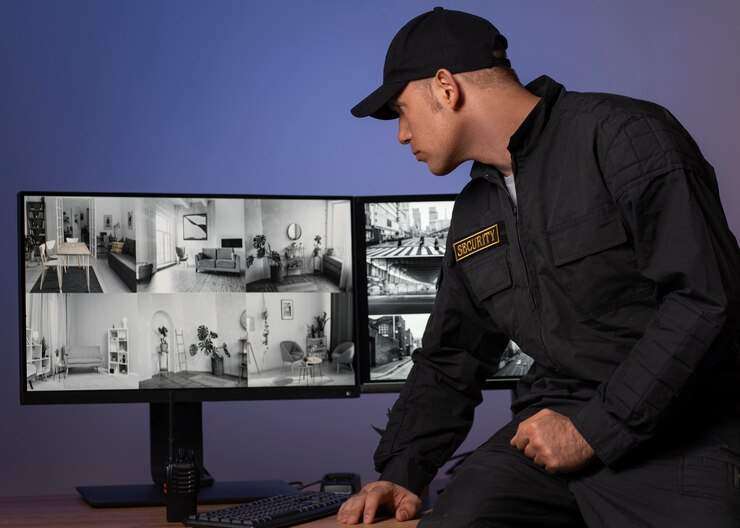
Today risks come from all corners and in unanticipated measures or consequences. That’s why having protective security is a must for all sorts and sizes of businesses. Video Surveillance Systems are not new and in fact, have been around for uniting a while. However, with several branded and non-branded video surveillance equipment options, it gets a tad challenging and hard. And so, what should or must users learn about these surveillance systems before making a choice or attempting to deploy them on their premises.
Important Features to Know of a Video Surveillance System
(a). Cameras
(b). Fast Internet Access
(c). Video Recorders
(d). Monitors and Displays
(e). Central Management Unit
(f). Wireless Bridge
Vital Things to Know About Video Surveillance Systems
1. Are You Searching for Commercial or Consumer Security Cameras
Essentially, surveillance cameras are put in main categories such as commercial security cameras and consumer security cameras. The commercial-grade cameras are wide-angle and range and quality footage security cameras. They are highly-priced for their durability and numerous features and functions. The commercial-grade recorders depending on their storage capacity, camera connectivity, and image processing features offer higher value in terms of quality footage. Consumer-grade security is basic with fewer but still relevant security features and functions.
2. Does the Cameras Have Cloud or Remote Video Storage Capability?
The internet today is used across industries to run and manage several applications. For example, security IP video cameras are the unique aspect of this rule with remote access and cloud storage capability. Cloud video storage enhances remote storage capacity and capability making it possible to store or achieve huge amounts of data. How is this important to businesses and users to know? In case of break-ins or compromise it is easy to switch on and off cameras and still have access to old video footage. Besides, this ensures whatever is shot and stored is safe and accessible by authorized personnel with access protocols. Cloud video storage ensures that even with break-ins all cameras can send video files directly to the cloud using the Internet. Today, several security video recorders prefer cloud storage backup. Network surveillance systems are also equipped with this feature as a standard.
3. Do You Need Thermal Imaging, Night Vision or Nixed Light (HDR)
Today, commercial surveillance video cameras have superior value and quality as they deal with difficult light conditions. Commercial-grade cameras can adapt with special light-handling features and functions. With High Dynamic Range (HDR), adapts to varying light conditions. HDR is a basic feature in most if not all commercial cameras. On the other hand, night vision on commercial cameras is fairly advanced night vision with infrared (IR) that adapts brightness to the scenes.
4. Do You Need Professional Installation or Do It Yourself (DIY)
Video surveillance helps prevent pilferage by employees, criminal trespass, burglary, enhance employee and customer security as well as totally secure premises 24/7, 365. But besides all that, they also collect and store vital evidence in case crimes are detected. Finding the best surveillance system suitable for your business is a combination of several factors.
5. Are the Camera Systems Integration-Friendly With Other Devices?
Given that some surveillance cameras need a network connection to fully optimize their capabilities in the surveillance system then integration-friendliness is a must. It is rare to see complete stand-alone surveillance systems in operation. It is better to establish if the intended camera system easily integrates with other devices. Integration simply means the ability of the cameras to adapt to other devices on the network, i.e. smart devices that can communicate with each other via networks. Commercial grade camera systems communicate with other smart devices, especially with the advent of machine learning, deep learning and Artificial Intelligence (AI) voice-controlled devices.
6. Do You Want Internet Protocol (IP) Cameras vs. Analogue Cameras
There are two types of video surveillance cameras in the market today. These can be attached to digital surveillance systems. They are IP and analogue cameras. IP cameras have modern features whereas analogue cameras and more for home security purposes. These varying features include resolution, video analytics, network video recorders, etc. IP cameras are usually more expensive than analogue cameras. But there are several benefits like wider vision field, need few cameras than analogue camera surveillance systems.
7. Level of Durability and Quality Assurance or Warranty
Video surveillance cameras vary in quality, grade, purpose and category. What are you looking for in the first place? Are you looking for commercial or home use surveillance cameras? Commercial video surveillance is for high-performance applications while home-use surveillance cameras are for basic home security tasks. Home-use surveillance systems are accurate with sufficient lighting conditions. Commercial surveillance systems on the other hand with larger internal video sensors and high-quality components can easily adapt and record perfect images even in low light conditions. Besides, their costs, brands, warranty assurances and other after-sales services can spell their quality, longevity and service record or performance.
8. Level of Video Surveillance Camera Resolution
Camera resolution is perhaps the topmost among issues to look out for or learn about. But can you know and learn what is best and appropriate. Camera resolution simply means the number of pixels that constitute a video image. Today, high definition recording (HDR) is common in most videos cameras. High resolution is common in most gadgets today like 1080p and 4K. Surveillance cameras today have more resolution thus the clarity of video surveillance images.
9. Specific Business Locations Require Surveillance Most
Businesses are always at risk. But from where and in what measure remains the challenge. Surveillance systems are deterrent security measures that force criminals to think twice before committing a crime. They are an accessory to law enforcement agencies who can use the video footage to track and apprehend criminals in case of security breaches. Besides, they enhance employee accountability as they help track and monitor daily productivity and efficiency. They may directly or indirectly reduce business insurance premiums.
Summary
Security is a must for all businesses. Protecting and preserving your business interests against unforeseen dangers is always a continuous effort. That is where the value and necessity of Video Surveillance Systems is well illustrated and manifested. For with the surveillance they confer there is a certainty that your business interests are secure. Today, surveillance systems are more intelligent and effective especially with the adoption of Artificial Intelligence (AI) in most video recorders used in surveillance. They have multiple uses and features such as motion sensors, night vision, mobile notifications, intelligent alarms and direct alerts to law enforcement. Besides, better recording and storage makes modern surveillance systems powerful and affordable.

